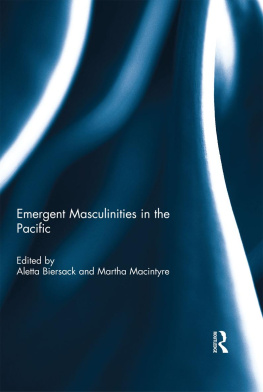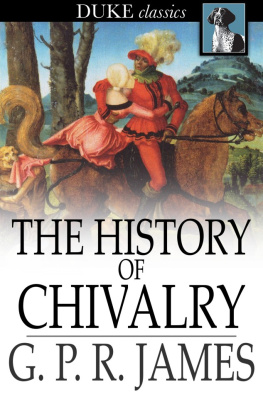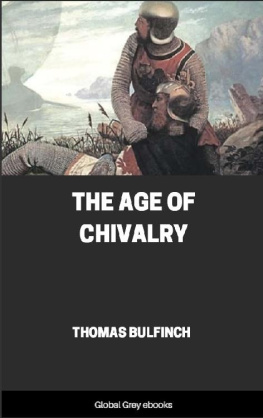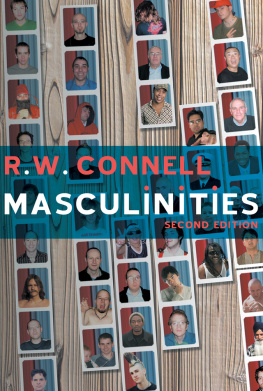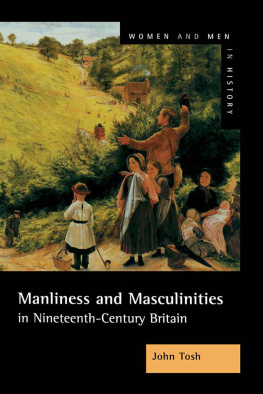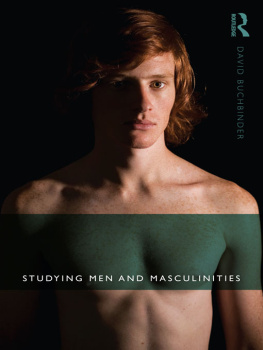Praseeda Gopinath - Scarecrows of Chivalry: English Masculinities After Empire
Here you can read online Praseeda Gopinath - Scarecrows of Chivalry: English Masculinities After Empire full text of the book (entire story) in english for free. Download pdf and epub, get meaning, cover and reviews about this ebook. year: 2013, publisher: University of Virginia Press, genre: Politics. Description of the work, (preface) as well as reviews are available. Best literature library LitArk.com created for fans of good reading and offers a wide selection of genres:
Romance novel
Science fiction
Adventure
Detective
Science
History
Home and family
Prose
Art
Politics
Computer
Non-fiction
Religion
Business
Children
Humor
Choose a favorite category and find really read worthwhile books. Enjoy immersion in the world of imagination, feel the emotions of the characters or learn something new for yourself, make an fascinating discovery.

- Book:Scarecrows of Chivalry: English Masculinities After Empire
- Author:
- Publisher:University of Virginia Press
- Genre:
- Year:2013
- Rating:3 / 5
- Favourites:Add to favourites
- Your mark:
- 60
- 1
- 2
- 3
- 4
- 5
Scarecrows of Chivalry: English Masculinities After Empire: summary, description and annotation
We offer to read an annotation, description, summary or preface (depends on what the author of the book "Scarecrows of Chivalry: English Masculinities After Empire" wrote himself). If you haven't found the necessary information about the book — write in the comments, we will try to find it.
Scarecrows of Chivalry: English Masculinities After Empire — read online for free the complete book (whole text) full work
Below is the text of the book, divided by pages. System saving the place of the last page read, allows you to conveniently read the book "Scarecrows of Chivalry: English Masculinities After Empire" online for free, without having to search again every time where you left off. Put a bookmark, and you can go to the page where you finished reading at any time.
Font size:
Interval:
Bookmark:
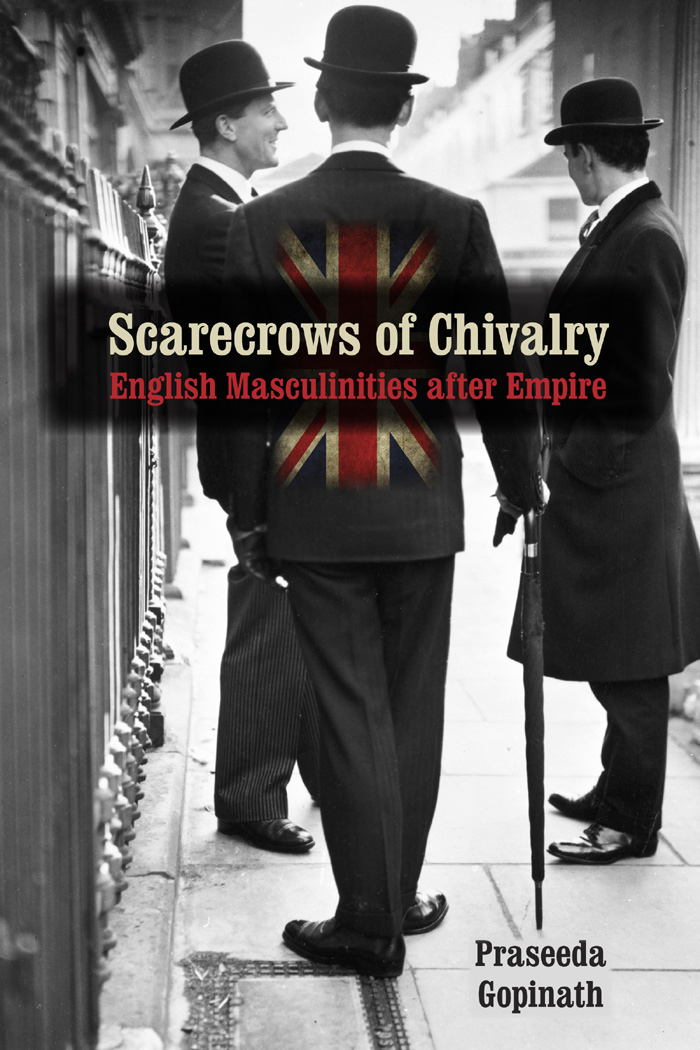
Scarecrows of Chivalry

English Masculinities after Empire
PRASEEDA GOPINATH
University of Virginia Press
Charlottesville and London
University of Virginia Press
2013 by the Rector and Visitors of the University of Virginia
All rights reserved
Printed in the United States of America on acid-free paper
First published 2013
1 3 5 7 9 8 6 4 2
L IBRARY OF C ONGRESS C ATALOGING-IN -P UBLICATION D ATA
Gopinath, Praseeda, 1975
Scarecrows of Chivalry : English Masculinities after Empire / Praseeda Gopinath.
pages cm
Includes bibliographical references and index.
ISBN 978-0-8139-3382-5 (pbk. : acid-free paper) ISBN 978-0-8139-3381-8 (cloth :
acid-free paper) ISBN 978-0-8139-3383-2 (e-book)
1. English literature20th centuryHistory and criticism. 2. Masculinity in
literature. 3. Chivalry in literature. I. Title.
PR478.M34G67 2013
820.900914dc23
2012039740
For my parents,
Sreedevi Gopinath and C. R. Gopinath
I have incurred a debt of gratitude to many people who have contributed immeasurably to this project that began life as a dissertation. I would like to thank my advisors Jed Esty and Joe Valente, who helped to define and shape this study. They were, and continue to be, my models for intellectual rigor, generosity, and scholarship. I am also grateful to many scholars whose input at various stages was so crucial to my thinking on this book: Kristin Bluemel, Robert Caserio, Debra Rae Cohen, Tim Dean, Patrick Deer, Matt Hart, Jim Hansen, Allan Hepburn, Suvir Kaul, Phyllis Lassner, Ania Loomba, William Maxwell, Bruce Robbins, Juliet Shields, Paul Schleuse, and Julia Saville.
Fellowships and release time from the University of Illinois, Urbana-Champaign; Binghamton University; and the Institute for Advanced Studies in the Humanities, Binghamton University, made this project possible. At the University of Virginia Press, Cathie Brettschneider has been unbelievably supportive as she shepherded this manuscript to publication. I would also like to thank my copyeditor, Colleen Romick Clark, for being so thorough and responsive during the final stages of preparing the manuscript for press. I am very grateful to the extremely generous anonymous reviewers, whose incisive and detailed feedback has made this a much better book.
Not only did my colleagues and friends at Binghamton University, State University of New York, make me feel welcome, but the breadth and diversity of their work enabled my own research to expand in new directions. I would like to thank David Bartine, Michael Conlon, Marilynn Desmond, Thomas Glave, Scott Henkel, Leslie Heywood, Kelly Kinney, Bob Miklus, Peter Mileur, Bill Spanos, Susan Strehle, and Lisa Yun. Thanks also to my graduate student and research assistant, Minjeong Kim, for her tireless assistance on the preparation of this manuscript. I am very grateful for the friendship, guidance, and intellectual exchange offered by Donette Francis, Pamela Gay, Joe Keith, Robert Ji-Song Ku, Monika Mehta, Jennifer Stoever-Ackerman and Nancy Um. To Keguro Macharia, Deepti Misri, Dan Tracy, Yogita Goyal, and Melissa Free, some of whom have probably read parts of this manuscript more times than is good for them, I want to say thank you so much. Your comments made this work tighter and sharper than I could ever have hoped to produce on my own. More than anything, though, thank you for being there through it all. To this list, I would add Pallavi Mansingh and my sister, Praveena Gopinath-Kapur, who always listened and encouraged.
To my parents, Sreedevi Gopinath and C. R. Gopinath, who instilled in me the courage to chart my own path and the perseverance to stay on it, whose faith has never faltered (even though my father couldnt understand why it was taking so long!), I dedicate this book. Finally, to Diwakar Gupta, who reminds me every day that there is life beyond this book, I cannot possibly express my gratitude and affection, so I shall leave it at that.
I am grateful to Studies in the Novel, Taylor and Francis Ltd., and Johns Hopkins University Press for permission to reprint portions of chapters 1, 3, and 5 that originally appeared in Studies in the Novel 41.2 (2009), Textual Practice 23.3 (2009), and Modern Fiction Studies 58.2 (2012), respectively.
Scarecrows of Chivalry
You cannot say you know England until you know the English gentleman.
V. S. N AIPAUL
When Eric Blair decided to adopt the pseudonym George Orwellbased on Englands patron saint and the little river that ran beyond the garden of his childhood homehe deliberately crafted what he believed to be a quintessentially English everyman persona: an Englishman who was patriotic, but reasonably so; one who believed in the English countryside as the heart of the nation, in the English people, in decency, and in the quotidian virtues of life. He emphasized common sense, egalitarianism, and the empirical perspective, while still believing in the long-standing traditions of a national culture, looking forward and back at the same time. He was the spokesperson for the intelligent and the traditional ordinary Englishman.
In The Road to Wigan Pier (1937), part-ethnography and part-autobiographywritten for Victor Gollanczs Left Book ClubOrwell calls himself a sufficiently typical example of the English middle class even as he attacks its attitudes and prejudices. The book, published on the eve of World War II, sits on the cusp of massive cultural change. Over the course of the next two decades, England participated in a world war, conceded independence to many of its colonies, and established the welfare state. Ostensibly a documentary account of the poverty in working-class communities and the failure of socialism in Britain, it is actually an ethnographic account of the state of England and what it means to be a middle-class Englishman in a transitory time. As a typical example of the middle-class Englishman, he describes his background and prejudices, and in doing so, he tracks his own evolution from Eric Blair to George Orwell, connecting it to the larger national changes: I was born into what you might describe as the lower-upper-middleclass. The upper-middle class, which had its heyday in the eighties and nineties, with Kipling as its poet laureate, was a sort of mound of wreckage left behind when the tide of Victorian prosperity receded (Road 121). This is a surprisingly accurate rendition of the mood of the 1930s, especially as seen through the perspective of the middle-class Englishman. The interwar years were, as Alison Light has argued, a period of tumultuous change as far as the middle classes were concerned: The middle class was undergoing radical revision between the wars, and this revised class included the beautician as well as the civil servant, the florist and the lady doctor and the manifold differences in between (1314). This particular description of Orwells hyphenated and nuanced background is often used to illustrate the upheavals of the middle classes and the attendant financial and class insecurities of the interwar period. In interesting ways, Orwell the persona, especially in terms of his own non-fictive biographical writings, is synecdochic of national tumult.
As Orwell points out, he came of age after the luxury and privilege of the Edwardian era, when the empire was on the wane and the bright sheen of wealth, power, and prestige was slowly ebbing away from the lower reaches of the upper-middle class and the middle class in general. Orwells trajectory reflected this shift, but in the case of his crafted, gendered persona, it also reflected both the decline and the expansion of the class system. Orwells belatedness as an upper-middle-class English gentleman enabled him to be aware of the unjust hierarchy that propped up his own cultural, social, and gender delineations, and consequentially allowed him to see himself as a product of those hierarchies. In a proto-Bourdieuvian move, Orwell links class origin to identity and taste. Raymond Williams, in his astute analyses of Orwells life and literature, points to Eric Blairs precarious class positionof being simultaneously dominator and dominatedas instigating a conflict in Blair that brought about a crisis of identity. It is Blairs double vision that led to the creation of George Orwell. What becomes apparent is that his gentlemanliness is rendered explicit at the very moment of his self-distanciation from the class of his birth.
Font size:
Interval:
Bookmark:
Similar books «Scarecrows of Chivalry: English Masculinities After Empire»
Look at similar books to Scarecrows of Chivalry: English Masculinities After Empire. We have selected literature similar in name and meaning in the hope of providing readers with more options to find new, interesting, not yet read works.
Discussion, reviews of the book Scarecrows of Chivalry: English Masculinities After Empire and just readers' own opinions. Leave your comments, write what you think about the work, its meaning or the main characters. Specify what exactly you liked and what you didn't like, and why you think so.

